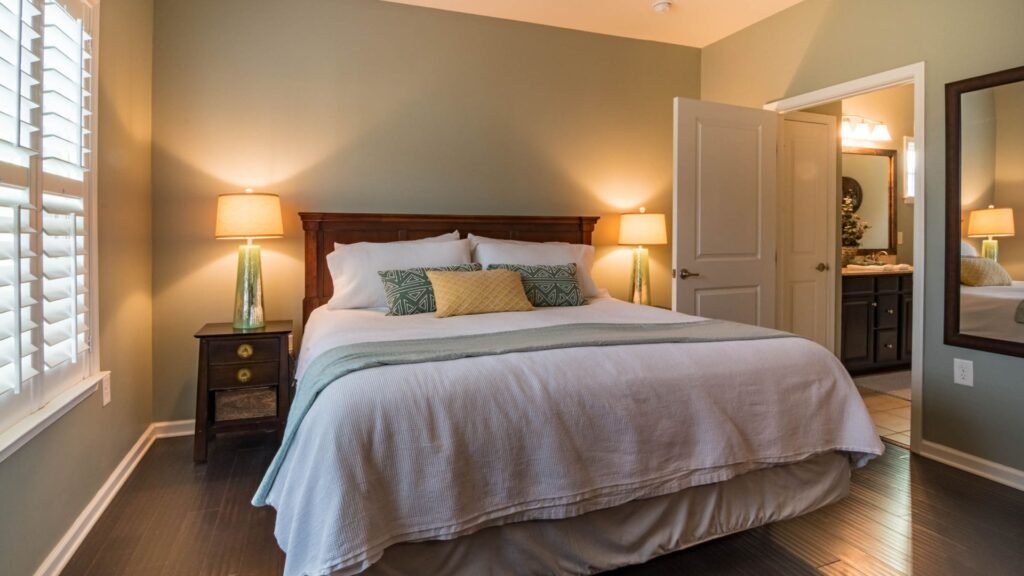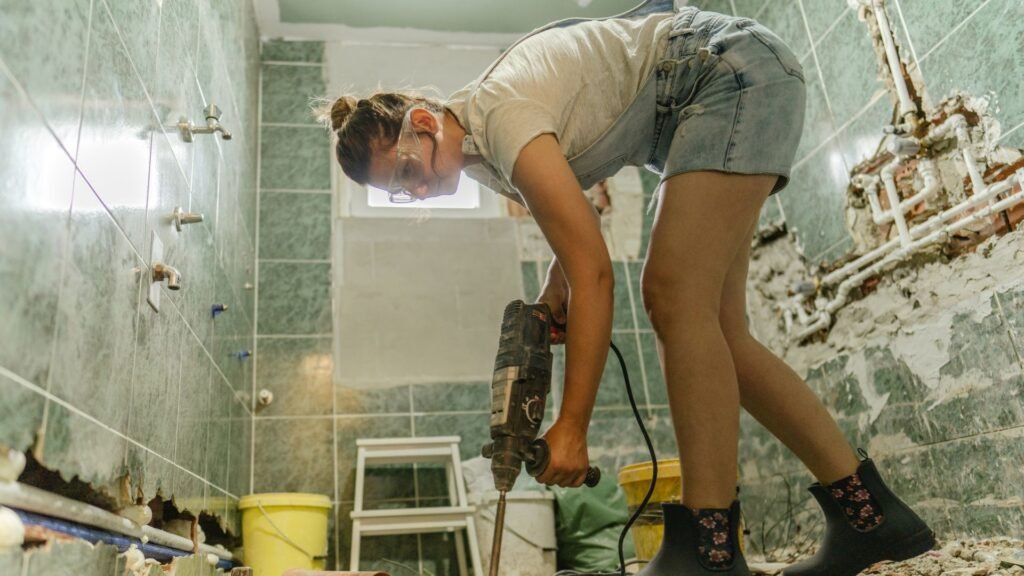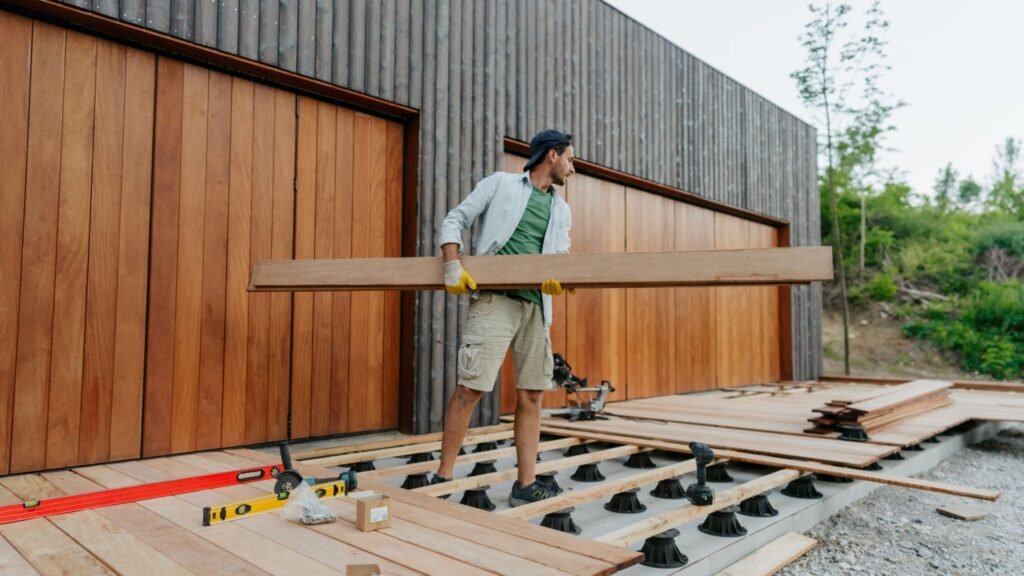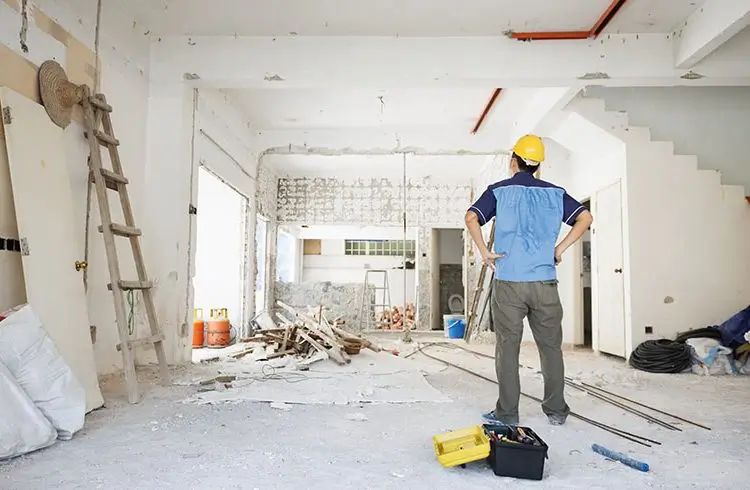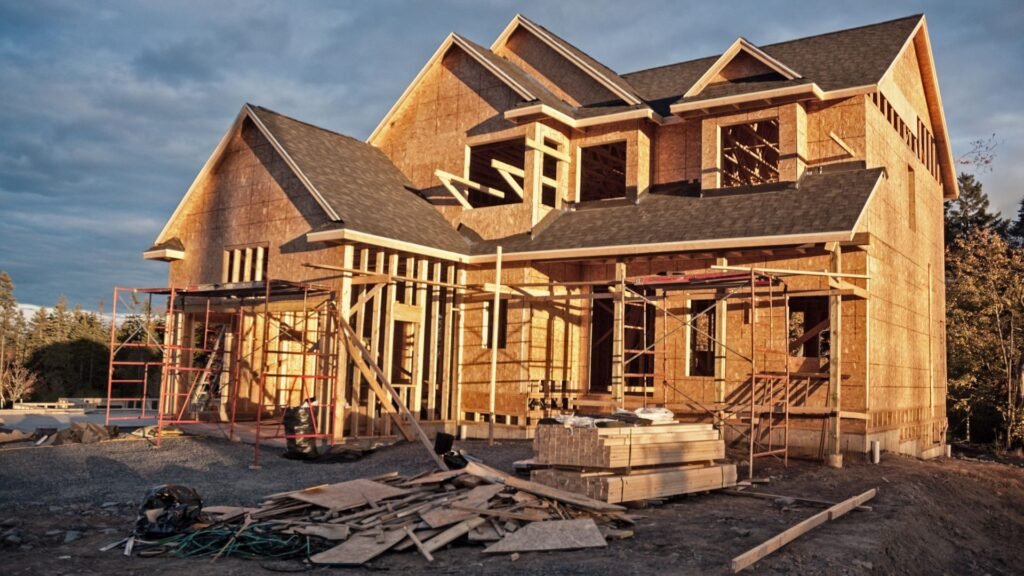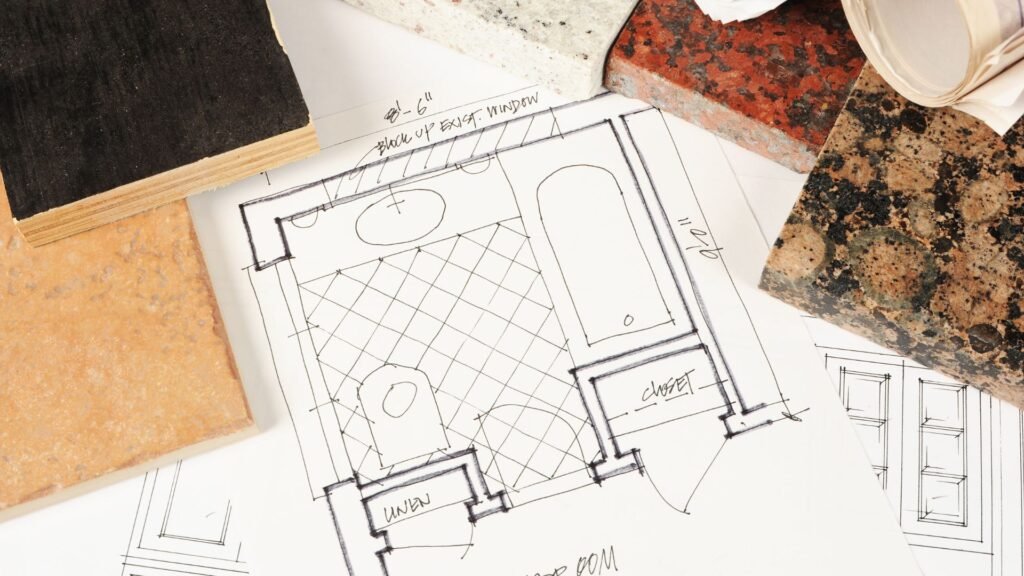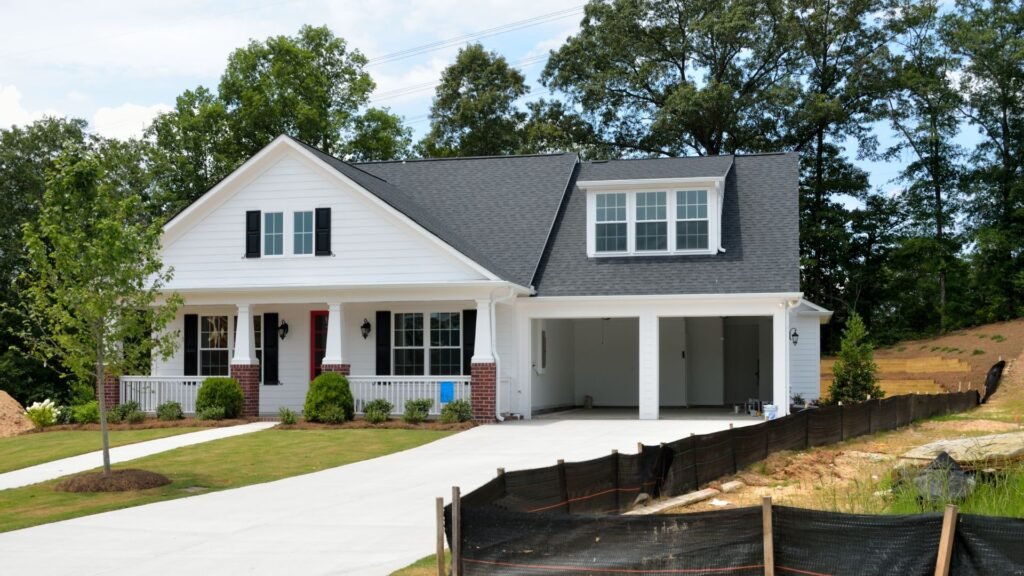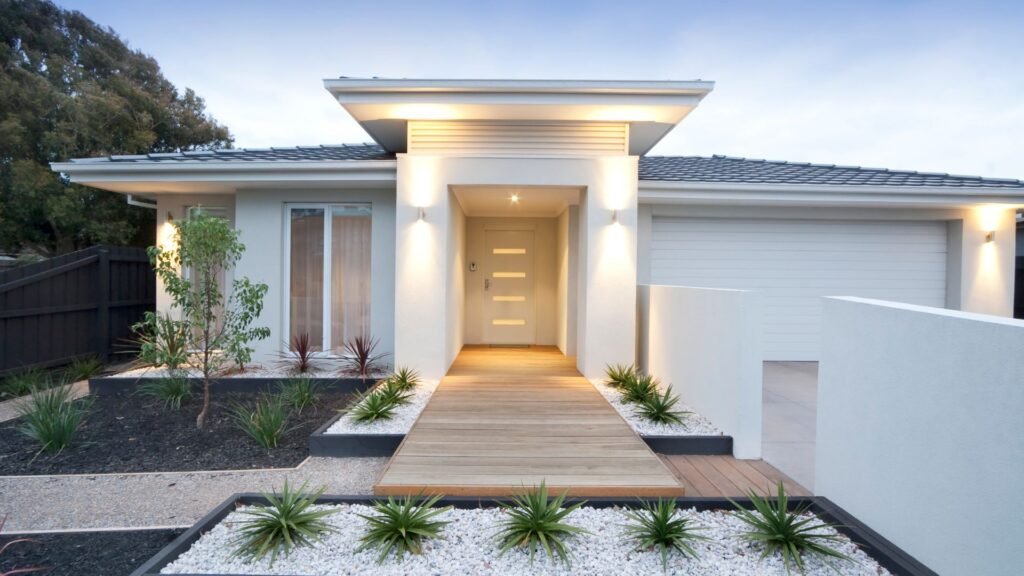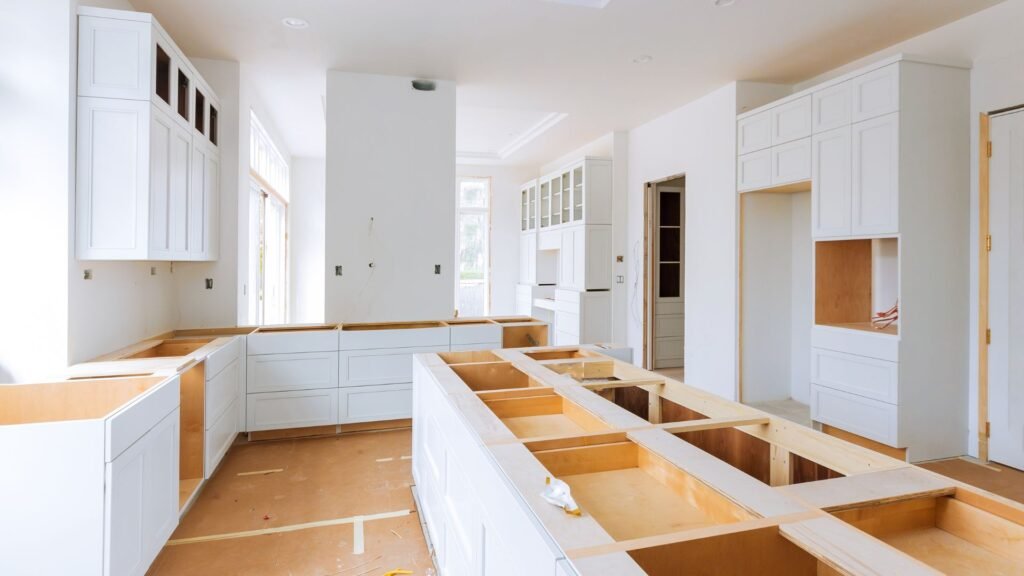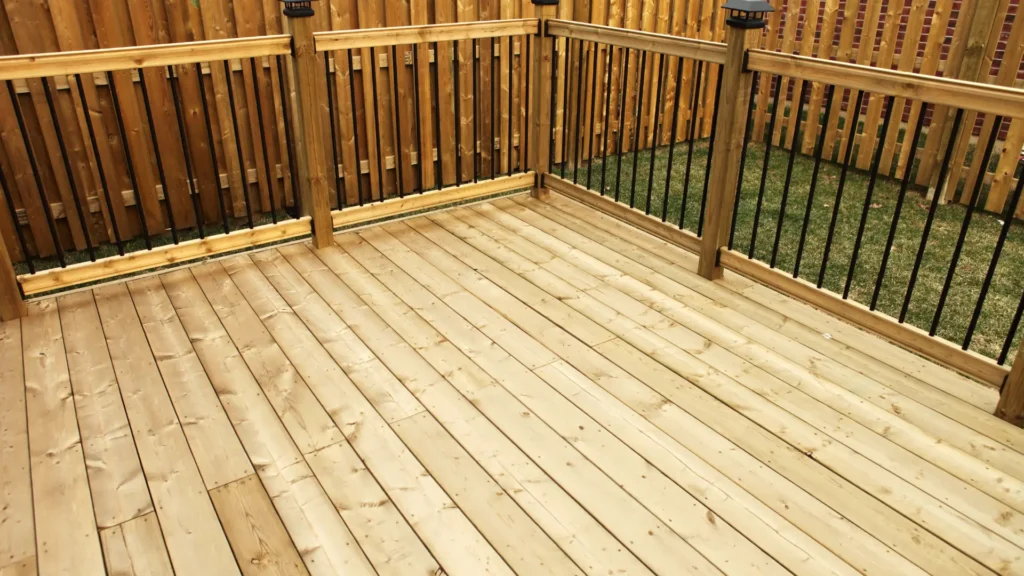Welcome to your go-to guide on understanding bedroom renovation costs in NZ. If you’re thinking about updating your bedroom, whether it’s a simple refresh or a full makeover, it’s natural to wonder how much it will cost. Renovations can quickly go over budget without a clear plan, especially when unexpected expenses pop up. This post will walk you through everything you need to know: average costs, what influences the final price, real-life examples, and tips to save money without sacrificing quality. Whether you’re working with a builder or tackling parts of it yourself, this guide will help you plan with confidence and avoid nasty surprises.
The average bedroom renovation cost in NZ ranges from $3,000 to $20,000, depending on the size of the room, quality of materials, and scope of work. Basic upgrades like painting and flooring cost less, while full remodels with custom wardrobes, insulation, and electrical work can push the budget higher.
Table of Contents
Why Renovate Your Bedroom?
Renovating your bedroom is more than just a cosmetic upgrade, it can significantly improve your day-to-day living, support your changing lifestyle, and even increase the value of your home. Whether you’re a homeowner or a renter, a bedroom renovation offers clear, practical benefits.
Improve Comfort, Lifestyle, And Resale Value
Your bedroom is where you start and end every day. A cluttered layout, outdated decor, or poor insulation can affect your sleep and mood. Renovating gives you a chance to create a calming, functional space that meets your personal needs.
Upgrades like double-glazed windows, new lighting, fresh paint, or better storage can improve both comfort and energy efficiency. These changes don’t just enhance your experience, they can also increase your property’s appeal if you decide to sell in the future. A modern, well-designed bedroom is a selling point for many Kiwi buyers.
Growing Families, Working From Home, Or Just Tired Of The Old Look
Needs change over time. You might be welcoming a new baby, setting up a home office, or simply ready for a style refresh. Renovating your bedroom lets you adapt your space to match your current life stage.
Consider soundproofing, better lighting, or multifunctional furniture. That spare room can become your dream master suite or a relaxing retreat. Renovation is your chance to design a room that actually fits your life today.
Value-Added Benefits For Homeowners Vs. Renters
For homeowners, bedroom renovations can directly increase property value. Strategic improvements, like built-in wardrobes or better heating, can boost your home’s appeal and make it stand out in the market.
Renters also benefit from bedroom upgrades, even if it’s just a fresh coat of paint or better curtains. While you might not want to invest heavily in a property you don’t own, small changes can still improve how you feel in the space without breaking your lease terms.
Whether you own or rent, investing time and money into your bedroom can pay off in comfort, productivity, and peace of mind.
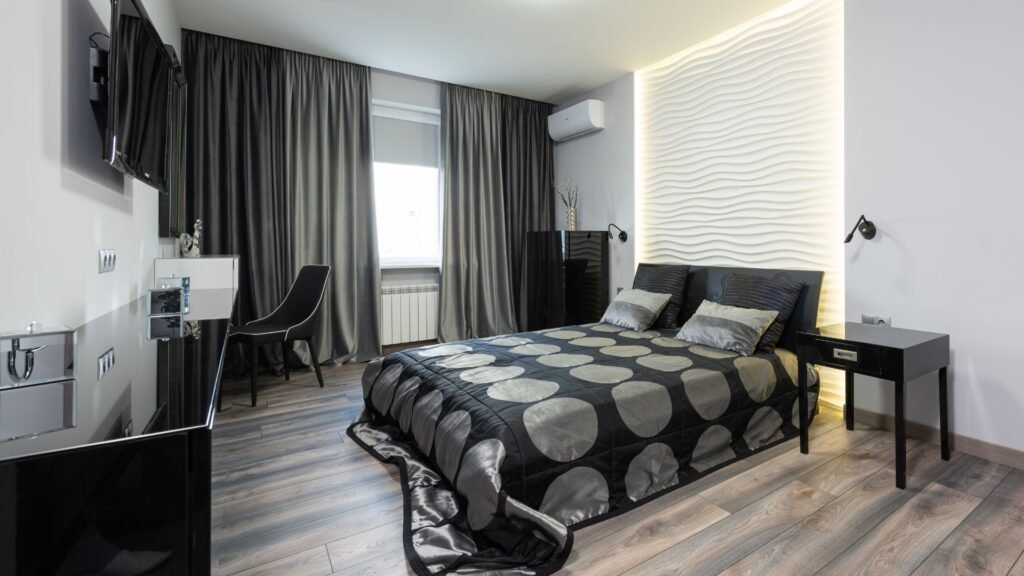
Average Bedroom Renovation Cost In NZ
Renovating your bedroom is one of the best ways to improve comfort and refresh your home. But before you begin, it’s important to understand what you’re likely to spend. Costs vary depending on how simple or complex your renovation is, where you live in New Zealand, and whether you’re doing it yourself or hiring trades. Let’s break it down so you know exactly what to expect.
General Cost Range (Basic To Premium)
In New Zealand, the average bedroom renovation cost can range widely:
Basic Renovation: $3,000 – $8,000
This includes cosmetic updates like new paint, carpet, light fittings, and curtains. You’re not moving walls or hiring architects, just freshening up the space.
Mid-Range Renovation: $8,000 – $15,000
This may involve installing a built-in wardrobe, replacing flooring, updating lighting, repainting walls, and possibly adding insulation or new window coverings. Most homeowners fall into this range.
High-End or Full Renovation: $15,000 – $25,000+
This includes major changes like adding or removing walls, full electrical rewiring, custom storage solutions, premium flooring, insulation upgrades, or installing new windows. High-end renovations often require multiple trades and longer timelines.
Your total cost will also depend on how much of the work you’re doing yourself, the materials you choose, and how much you’re paying for labour.
Local Factors That Affect Cost (Location, Access, Local Labour Rates)
Where you live in New Zealand can impact your renovation budget more than you might expect.
- Location: Renovations in cities like Auckland or Wellington typically cost more than in regional areas. This is due to higher labour rates, material costs, and limited contractor availability.
- Access: If your bedroom is upstairs, hard to reach, or has narrow access points, labour costs may increase. Tradespeople may need extra time or equipment to complete the job.
- Local Labour Rates: Builders and electricians in some areas charge more based on demand. In Auckland, for example, a certified electrician might charge $100–$120 per hour, while the same job in a smaller town may cost $80–$90 per hour.
- Supply Delays Or Material Availability: In some regions, certain materials or fixtures may be harder to source, which can drive up the price or cause project delays.
Always get local quotes and ask contractors if travel time or access will affect their price.
When Cheap Might Cost You More Later
It’s tempting to go for the lowest quote or choose cheaper materials, especially when you’re trying to stick to a budget. But saving money upfront can sometimes lead to higher costs down the road.
- Poor Workmanship: Hiring unlicensed or inexperienced tradespeople may cost less initially, but you could face issues like faulty wiring, leaks, or failed inspections later.
- Cheap Materials Wear Faster: Low-quality flooring, paint, or fittings often don’t last. You may need to replace them sooner than expected, increasing your long-term costs.
- No Warranty Or Support: Reputable contractors often provide guarantees for their work. Budget contractors may not, which means you’re on your own if something goes wrong.
- Missed Council Compliance: If you skip the proper permits or don’t follow building codes, you might face penalties or be forced to redo work, costing far more than you saved.
A better approach is to spend smart, not cheap. Focus your budget on the things that really matter, like proper insulation, safe electrical work, and good storage, and cut back on areas that are easy to upgrade later.
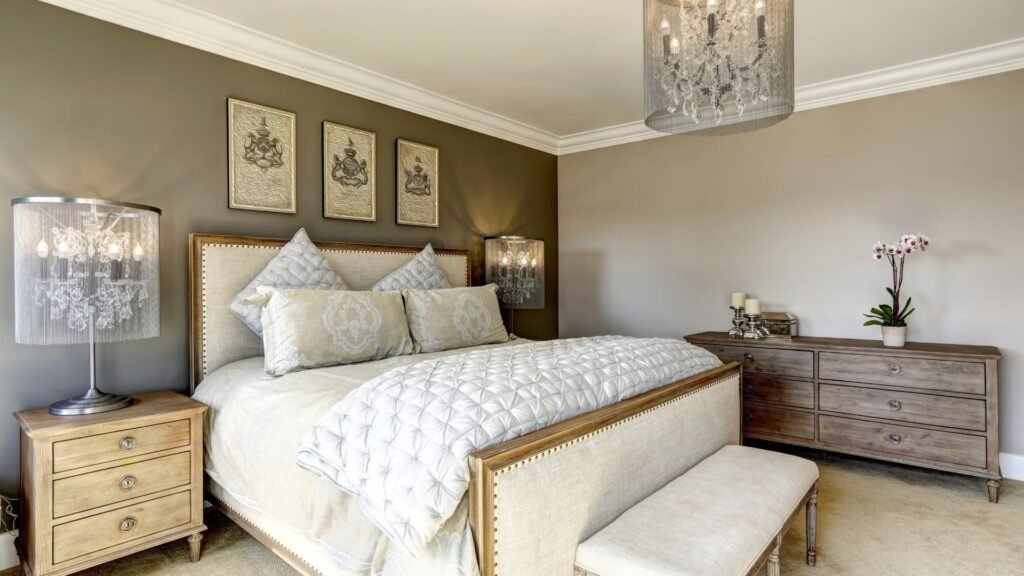
Breakdown Of Key Cost Factors
Renovating a bedroom in New Zealand means dealing with many moving parts. From layout planning to finishings, each decision affects your final cost. Below is a complete breakdown of the key cost factors you should understand before starting.
Design And Planning
DIY Vs. Hiring A Designer
If you’re on a tight budget, DIY design might seem appealing. Sketching your own ideas or using free online tools can save you money. But the risk is missing small details that add up later, like poor space planning or clashing materials.
Hiring a designer or architect gives you expert advice and a clear vision. They help you choose the right layout, color palette, materials, and lighting. This upfront cost can reduce mistakes and increase the resale value of your home.
Cost Of Working With An Architect Or Interior Designer
Interior designers typically charge between $75 to $150+ per hour in NZ. Some offer fixed-price packages for simple bedroom projects. Architects are more expensive, usually reserved for structural work or large-scale renovations. Expect to pay more if you live in a major city like Auckland or Wellington.
Building Consent And Council Fees
When Do You Need Council Approval?
If your renovation changes the structure, layout, or involves plumbing or major electrical work, you may need building consent. Installing larger windows, adding a wall, or converting a bedroom into an ensuite might all require approval.
Cosmetic updates like flooring, painting, or light fixture changes typically do not need consent. Still, always check with your local council to avoid future issues.
Associated Costs And Delays
Getting consent isn’t free. Application fees can range from $500 to $2,000+, depending on your council and project size. Also, approvals can take several weeks or more, which may delay your project. Factor this into both your timeline and budget.
Flooring
Carpet Vs. Laminate Vs. Hardwood
Your flooring choice makes a big difference in both cost and style.
- Carpet is warm and affordable, costing around $40–$80 per square metre.
- Laminate mimics wood and is easy to clean, with prices from $50–$100 per square metre.
- Hardwood offers a premium look but is expensive, ranging from $90–$200 per square metre.
Average Costs Per Square Metre
For most NZ homeowners, the full flooring cost (materials and installation) can range from $1,000 to $5,000 depending on the room size and product choice.
Installation Vs. Materials
Always check if installation is included in the price. Carpet and laminate often come with bundled installation costs, while hardwood may need a separate professional installer. Labour usually adds 30%–50% of the material cost.
Painting And Wall Finishes
Prep Work Needed
Prepping the room is often overlooked. It includes sanding, fixing cracks, removing wallpaper, and priming. Good prep work ensures your paint job lasts longer and looks better.
Paint Quality And Coverage
Cheaper paint might save you upfront, but may need more coats and won’t last as long. High-quality brands like Resene or Dulux cost more but offer better coverage, color depth, and durability.
Hiring A Painter Vs. Doing It Yourself
Painting it yourself could save a few hundred dollars, but it’s time-consuming and messy. A professional painter charges $40–$80 per hour, or $400–$800+ for a standard bedroom. They’ll finish the job faster with better results.
Lighting And Electrical
Adding Downlights, Switches, Or Sockets
New lighting improves both function and style. Adding LED downlights, dimmer switches, or extra power outlets enhances comfort. Keep in mind that any electrical work must be done by a licensed electrician.
Cost Of Hiring A Certified Electrician
Electricians in NZ charge $90–$120+ per hour. Rewiring, installing light fittings, and adding new switches could total $300–$1,000 depending on the complexity of the job.
Smart Lighting Options
Smart bulbs and automation systems are becoming more popular. While more expensive initially, they add convenience and energy savings over time. Expect to spend $100–$300+ for smart lighting in a single room.
Built-In Storage And Wardrobes
Custom Vs. Pre-Made Options
Custom wardrobes are tailored to your space and needs but come at a premium. Pre-made or modular systems from retailers like Mitre 10 or IKEA are cheaper but may not fully maximize space.
Cost Of Sliding Vs. Hinged Doors
Sliding doors save space and work well in smaller rooms. Hinged doors are easier to access but require clearance space. Expect to pay $500–$2,500 for built-in wardrobe systems depending on size, materials, and configuration.
Insulation And Heating
Adding Or Upgrading Insulation
Insulating your bedroom improves energy efficiency and comfort. Ceiling and wall insulation costs vary, but you can expect to pay around $1,000–$3,000 for a standard room. This also adds long-term value to your property.
Heat Pump, Wall Heaters, Or Underfloor Heating
- Heat pumps are efficient but expensive, costing $2,000–$3,500 installed.
- Wall panel heaters are cheaper upfront ($200–$800) but cost more to run.
- Underfloor heating is luxurious but costly, usually $3,000+ and better suited for new builds or full renos.
Windows And Curtains/Blinds
Double-Glazing Upgrades
Replacing old single-glazed windows with double glazing improves insulation and reduces noise. It’s a high-cost upgrade, expect $500–$1,200 per window, but one that pays off in comfort and resale.
Block-Out Curtains Or Modern Blinds
Window dressings are the finishing touch.
- Block-out curtains cost around $100–$500+ per window.
- Roller blinds or venetians offer a sleek look from $80–$300 per window.
- High-end options with motorized systems cost more but add modern convenience.
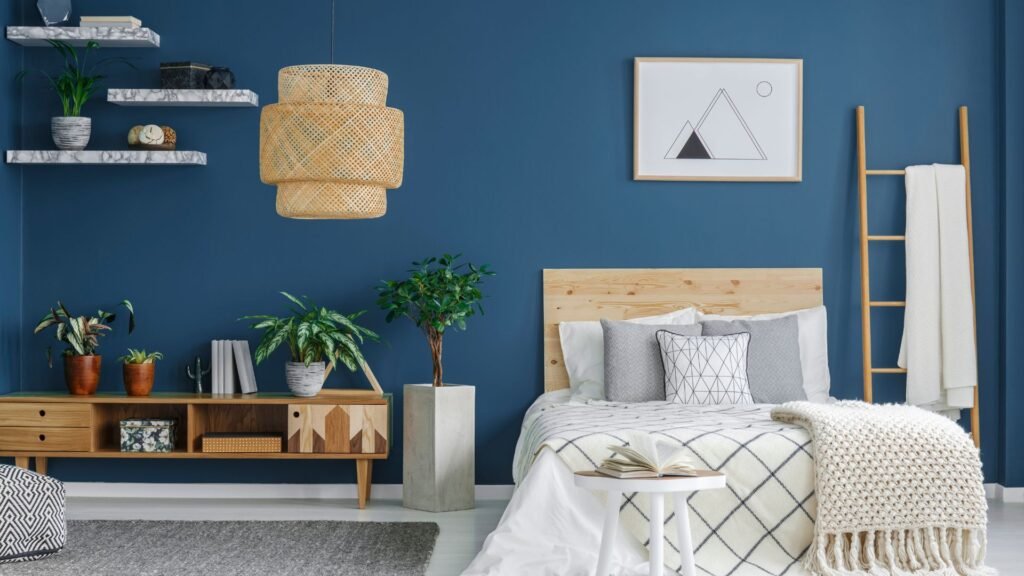
Labour Costs In NZ
One of the biggest costs you’ll face is labour. Understanding how much different trades charge helps you budget smarter and avoid surprises. Labour costs vary depending on the type of work, where you live, and how complex the project is. Below is a clear breakdown of what to expect.
Breakdown Of Hourly Rates For Key Trades
Here’s what you can expect to pay per hour for common trades involved in a bedroom renovation:
Builder: $50 to $100
Builders handle structural changes, framing, gib installation, and other general construction tasks. Complex jobs or tight timelines can push rates higher.
Painter: $40 to $80
Painters charge based on wall size, prep work, and whether multiple coats are needed. Prices include labour and usually exclude materials.
Electrician: $90 to $120
Licensed electricians are essential for anything involving new sockets, switches, or lighting upgrades. Expect higher rates in large cities.
Plasterer: $45 to $85
Plastering smooths out walls and ceilings, especially after gib installation. Rates depend on wall condition and surface area.
Rates may vary depending on demand, skill level, and how busy the trade market is in your area. Booking early can help secure better pricing.
Cost Difference Between Regions
Where you live in New Zealand affects how much you’ll pay. Here’s a quick look:
- Auckland: Labour costs are the highest due to demand and higher living expenses. Builders and electricians often charge at the upper end of their rate range.
- Wellington and Christchurch: Rates are slightly lower than Auckland but still competitive. Labour availability and workload affect prices.
- Regional towns: Labour can be more affordable in smaller areas, but tradespeople may be harder to find. Travel fees or limited options might cancel out cost savings.
If you live in a rural area, always check if trades charge travel time or mileage. Even a few extra trips can add hundreds to the final bill.
Why You Should Ask For Itemised Quotes
Many homeowners make the mistake of accepting a lump-sum quote without knowing what it includes. That’s risky.
Itemised quotes give you a full breakdown of:
- Labour hours per trade
- Cost of materials
- Disposal or cleanup fees
- Any subcontractors involved
- Travel or delivery charges
This transparency helps you compare quotes properly, catch any hidden costs, and make better decisions. It also protects you if there are disputes later.
Always ask for:
- Clear hourly rates
- Timeline for completion
- Scope of work in writing
- Payment schedule
And don’t be afraid to ask questions. A trustworthy contractor will explain their quote and help you understand where your money is going.
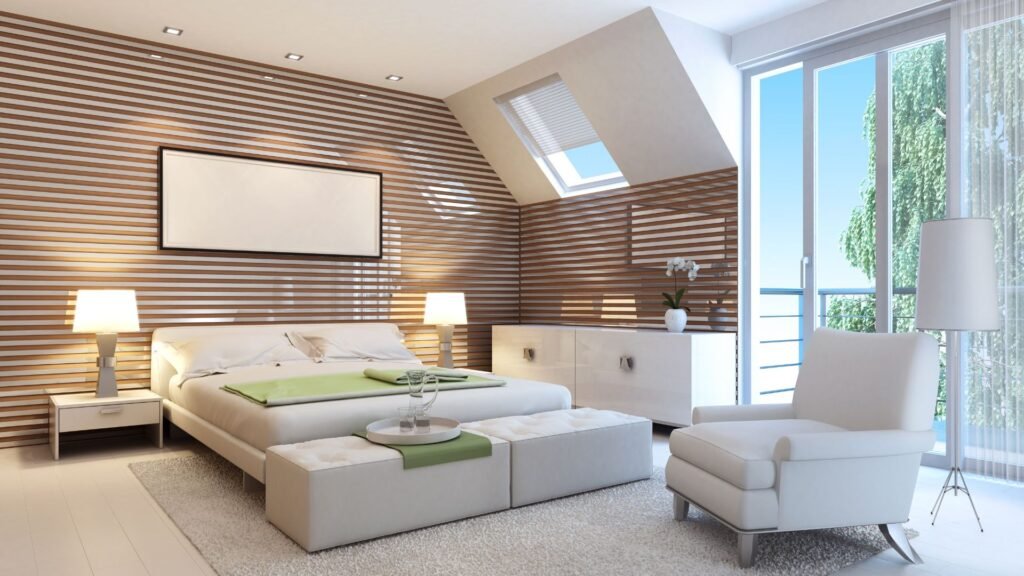
Hidden Or Unexpected Costs
Even with a solid budget in place, bedroom renovations in New Zealand often come with costs that slip under the radar. These aren’t the big-ticket items like flooring or lighting. Instead, they’re smaller, overlooked expenses that can stack up quickly and push your budget beyond what you planned. Understanding what to expect helps you stay in control and avoid surprises during your project.
Rubbish Removal
Every renovation creates waste, old carpet, broken fittings, packaging, and leftover materials. In most cases, your contractor won’t include rubbish removal in their quote unless you ask. If you’re managing the renovation yourself, hiring a skip bin or making dump runs yourself could cost anywhere from $100 to $500, depending on volume and location. Don’t assume it’s covered, ask early and plan accordingly.
Delivery Fees
Expect to pay for delivery, especially if items are large or come from outside your local area. Some retailers in NZ offer free delivery over a certain spend, but many charge extra for rural addresses or large-item handling. These costs may not seem like much at first, but when you’re ordering multiple items, they can quickly eat into your budget.
Timeline Delays
Delays are one of the most common hidden costs, especially when tradespeople get held up, weather interrupts the schedule, or materials arrive late. A delay of even a few days could result in extra labour fees, storage costs, or lost time if you’ve taken leave from work. If you’re on a tight timeline, delays can be just as costly as unexpected material expenses.
Temporary Accommodation If Needed
If your renovation is extensive or affects access to bathrooms, electricity, or insulation during winter, you might not be able to stay in your home while work is underway. Renting a motel, Airbnb, or staying elsewhere could become necessary. Depending on how long the renovation takes, temporary accommodation could cost hundreds, or even thousands, of dollars. Always have a backup plan, especially if you have kids or work from home.
These hidden costs are rarely talked about, but they make a big difference when planning your budget. Before starting any renovation project, build in a contingency fund, around 10 to 15 percent of your total budget, to cover these kinds of extras. Planning ahead will keep your project on track and reduce stress along the way.
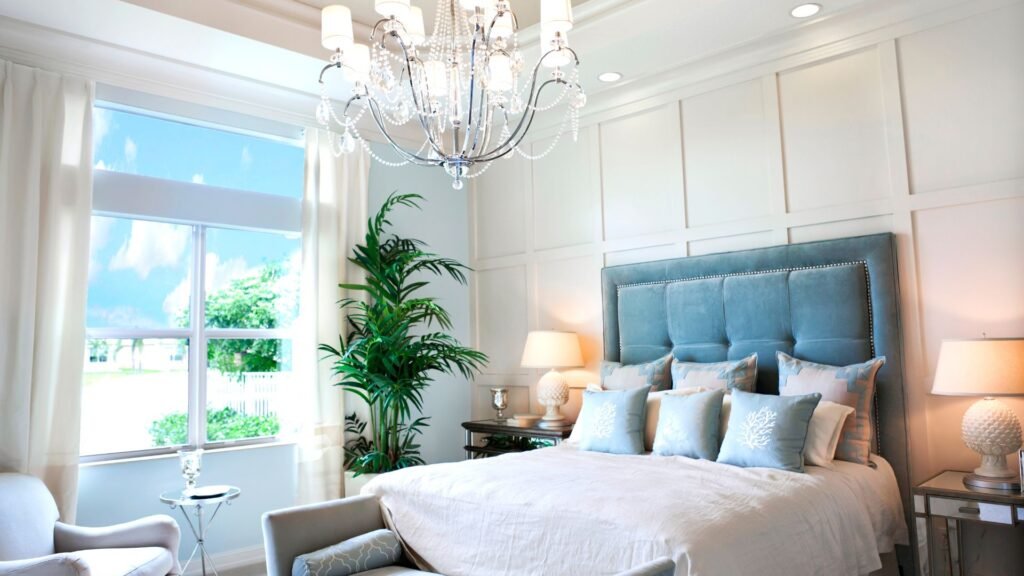
How To Save Without Cutting Corners
Renovating a bedroom in New Zealand doesn’t mean you have to spend more than you should. With the right planning and smart choices, you can reduce costs without sacrificing quality. The goal is to make intentional decisions, focusing your budget where it counts and trimming only where it makes sense. Here’s how you can keep your renovation affordable without ending up with cheap results.
Focus On Quality Where It Matters
Not everything needs to be top-of-the-line, but certain things shouldn’t be compromised. Flooring, insulation, and electrical work are areas where quality has a lasting impact. These affect comfort, safety, and long-term maintenance. Cutting corners here can lead to repairs or upgrades sooner than expected, costing more down the track. Invest in durable materials and hire qualified trades for anything that involves wiring, structural changes, or compliance.
Repurpose Furniture Or Materials
Before rushing to buy everything new, take a good look at what you already have. A coat of paint, new handles, or updated upholstery can breathe new life into old furniture. Repurposing wardrobes, side tables, or shelving not only saves money but adds a personal touch to your space. Timber offcuts, spare paint, or leftover tiles from previous renovations might also come in handy.
Shop Around For Seasonal Sales
Many home improvement stores in NZ run sales throughout the year, especially around public holidays, end-of-season clearances, or Black Friday events. Plan your renovation timeline so you can take advantage of these. You might score big savings on flooring, paint, lighting, and fixtures just by being patient and buying at the right time. Sign up for newsletters from major retailers so you’re first to know when sales drop.
Bundle Jobs To Reduce Labour Callout Fees
Every time you bring in a tradesperson, there’s usually a callout fee involved. If you’re hiring an electrician to install a new light, think about other electrical tasks you might need done now or in the near future. Bundling jobs together reduces the number of visits and helps you get more out of every dollar you spend on labour. Communicate clearly with your tradie and plan the project in stages that make sense.
When To DIY And When Not To
DIY can save a lot, but only when it’s done right. Painting, minor decor updates, flat-pack furniture assembly, or even laying laminate flooring are tasks many people can handle with a bit of research and care. But anything involving plumbing, electrical wiring, or structural changes should be left to the professionals. Mistakes in those areas can be dangerous and expensive. Be honest about your skill level, and don’t hesitate to call in help for the parts that matter most.
By applying these cost-saving tips thoughtfully, you’ll stay within budget without ending up with a bedroom that feels unfinished or low quality. Saving money isn’t just about spending less, it’s about making the most of every dollar. A well-planned renovation delivers long-term value, both financially and in how much you enjoy the space every day.
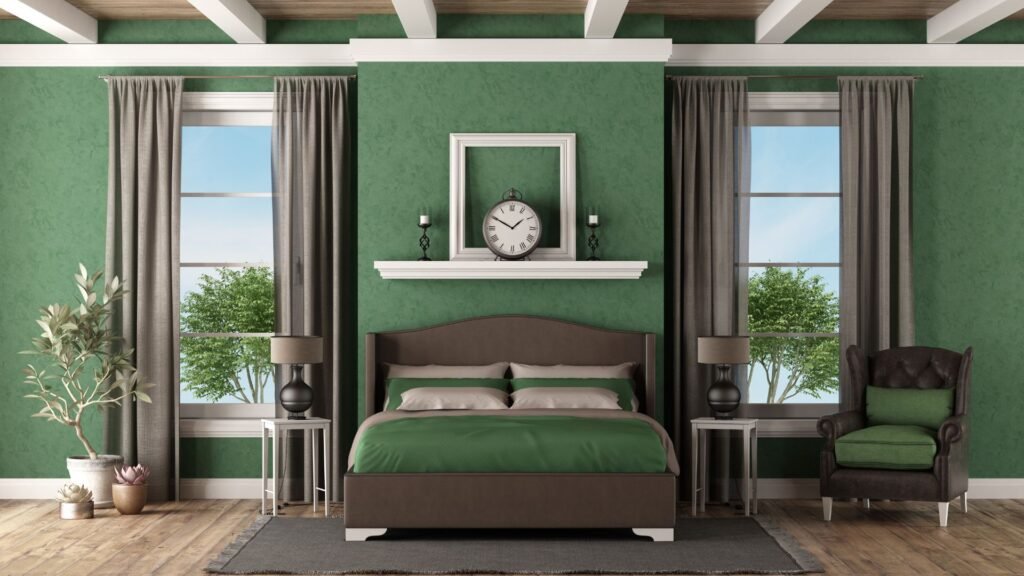
Real NZ Bedroom Renovation Examples
Real stories from homeowners across New Zealand show what bedroom renovations really cost, what’s involved, and how the results vary based on goals and budget. These case studies will help you see what’s possible, whether you’re working with a tight budget or planning a complete transformation.
Small Bedroom Update On A Budget
A couple in Palmerston North wanted to refresh their spare bedroom for under $5,000. Their goal was to make the room guest-ready without doing any structural changes. They started by repainting the walls with a soft neutral tone and replacing the old carpet with cost-effective vinyl planks. They upgraded the lighting fixture to a modern LED pendant and added blackout curtains for better comfort. flat-pack wardrobes from a local hardware store completed the room. All labour was done DIY except for the electrician. The entire project took one week and cost just under $4,700.
Full Master Bedroom Remodel With Ensuite
In Christchurch, a homeowner decided to transform an outdated master bedroom into a luxury retreat. The project included knocking down a non-load-bearing wall to expand the space and add a walk-in wardrobe and ensuite bathroom. The renovation involved architectural plans, building consent, a team of trades, and high-end materials like hardwood floors and underfloor heating in the ensuite. bespoke joinery and dimmable lighting were also installed. The project spanned six weeks and cost around $38,000, with most of the budget allocated to plumbing, electrical work, and custom finishes. While expensive, the homeowner reported a significant increase in property value and quality of life.
Rental Property Bedroom Refresh
A landlord in Hamilton wanted to make a tired rental bedroom more appealing without overspending. The budget was $3,000, and the goal was to improve tenant satisfaction. The landlord hired a painter to freshen up the walls and ceiling, replaced the curtains, and installed new laminate flooring. A built-in wardrobe was added to increase storage, and the existing ceiling light was swapped for an energy-efficient option. The project took four days and came in at $2,950. The landlord was able to raise the weekly rent slightly after the upgrade while reducing vacancy time.
These real-life bedroom renovations in New Zealand show that cost, time, and impact can vary greatly depending on your goals. Whether you’re doing a quick rental refresh or building your dream master suite, the key is to plan carefully, know your budget, and choose improvements that matter most to your lifestyle.
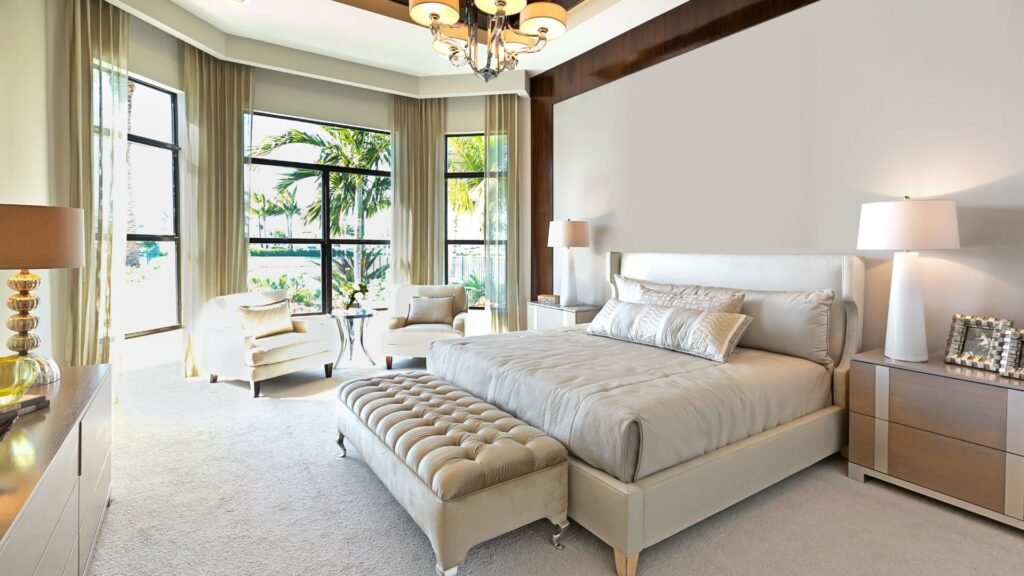
Should You Hire A Professional Or DIY?
Renovating your bedroom may seem like a simple weekend project. But once you start breaking down what’s actually involved, from rewiring to building wardrobes, it gets more complex.
The right answer depends on your budget, timeline, and comfort level with tools and regulations. Below, we break down the pros and cons of each option to help you decide what’s right for your situation.
Pros And Cons Of Hiring A Professional
Hiring a builder, designer, or licensed tradesperson can make your renovation faster, safer, and more polished. These experts bring years of experience, know-how, and the right equipment to get the job done properly.
Pros
- Quality workmanship backed by experience
- Project completion is faster and more reliable
- Reduced risk of mistakes or safety issues
- Access to tradespeople, suppliers, and permits
- Clear contracts, warranties, and insurance
Cons
- Higher upfront cost
- Scheduling may depend on contractor availability
- Less hands-on control over design or minor details
If your budget allows, working with professionals often saves time, stress, and money in the long run, especially on larger or technical renovations.
Pros And Cons Of Doing It Yourself
DIY is a great option for confident homeowners who enjoy hands-on projects. It’s also ideal if you’re working with a limited budget and want full creative control.
Pros
- Major cost savings on labour
- Total control over the process and materials
- Personal satisfaction from doing the work yourself
- Flexible schedule, you can work on your own time
Cons
- Time-consuming, especially if you’re learning on the go
- Limited access to trade discounts or industry tools
- Mistakes can lead to higher repair costs
- Legal or safety issues if permits or regulations are ignored
DIY can be rewarding, but it also requires patience and a willingness to learn as you go. If you take on more than you can handle, the cost of fixing errors may cancel out your savings.
Time, Tools, Permits, And Skill Level
Before choosing DIY or hiring a pro, ask yourself a few key questions:
- Do you have the tools and space to complete the job safely?
- Do you understand the building code or council requirements?
- Do you have enough time to work on the project without rushing it?
- Are you confident in your skills, or willing to learn them quickly?
For example, installing shelves or painting a room is manageable for most people. But rewiring electrical outlets, knocking down walls, or installing new windows often require certified trades and council consent. Mistakes in these areas could not only cost you more, they can be dangerous or even illegal.
When It’s Best To Get Expert Help
There are times when hiring a professional is the smart choice, no matter your DIY confidence level. You should always call in a pro when:
- Structural work is involved
- The job includes electrical or plumbing work
- Building consent or code compliance is required
- Precision is crucial, like custom cabinetry or tiling
- You want the project done within a tight timeframe
Working with a professional ensures the job is done right the first time. It also protects you from costly setbacks or safety risks. If you’re unsure, you can still take on smaller tasks and leave the technical parts to the experts.
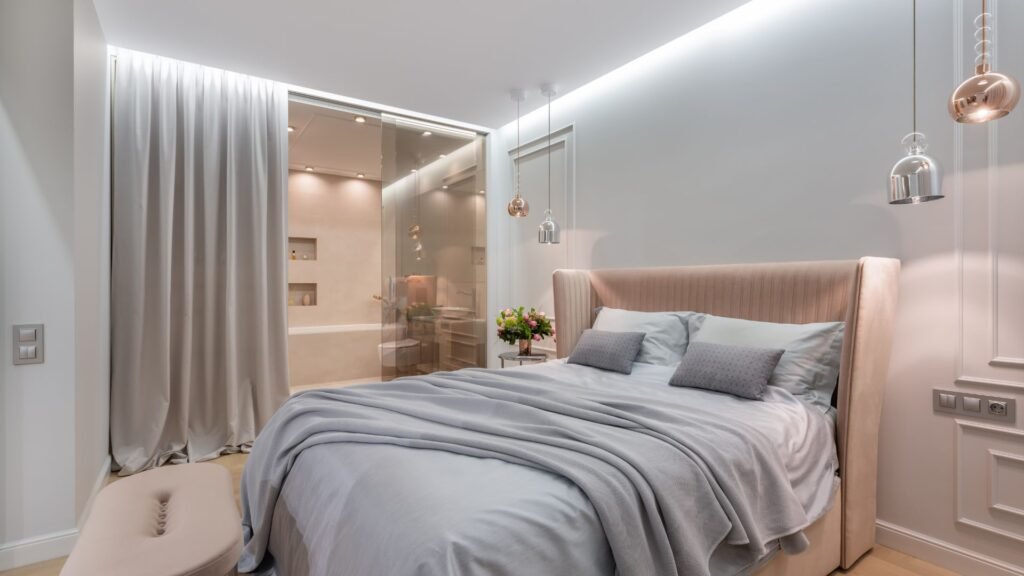
How To Choose The Right Renovation Partner
Finding the right renovation partner can make or break your bedroom project. Whether you’re planning a simple update or a full-scale remodel, the contractor you hire will have a major impact on the quality, cost, and timeline of the job. Here’s how to make the right choice with confidence.
Tips For Hiring Builders Or Contractors
Start by looking for builders or contractors who specialize in home or bedroom renovations. Avoid choosing someone based only on price. Instead, focus on experience, communication, and reliability.
Check if they are licensed and insured. In New Zealand, it’s essential that any structural work is done by a licensed building practitioner (lbp). This protects you if something goes wrong and ensures the work meets code.
Look at their portfolio. ask for photos of similar projects. a good contractor should be proud to show you their past work. Take note of how well their past projects match the style and scale of your own renovation goals.
Communication is key. If a contractor takes days to respond or gives vague answers, that could be a red flag. you want someone who will be clear, upfront, and available during the project.
Ask how many projects they’re currently handling. A busy schedule isn’t always bad, but make sure they’ll have time to give your bedroom the attention it needs.
What To Ask Before Signing A Contract
Before you commit, ask questions that help you avoid misunderstandings later:
- Can I see a full, itemized quote?
- What is your payment schedule?
- What happens if the project runs over budget or past the deadline?
- Who will be on-site doing the work?
- Do you use subcontractors?
A written contract should include the full scope of work, timeline, materials, payment terms, and what happens if something changes. Don’t rely on verbal agreements.
Checking References And Past Work
Never skip the reference check. Ask for at least two or three recent clients you can contact directly. Ask them:
- Were they happy with the final result?
- Did the project finish on time and on budget?
- How was communication during the renovation?
- Would they hire the same contractor again?
Also, look up online reviews, social media pages, and Google ratings. Be wary of contractors who have no online presence or won’t share references.
If possible, visit a completed project in person. Seeing the workmanship up close can tell you more than photos ever will.
Choosing the right renovation partner takes a little time upfront, but it saves you stress, money, and mistakes later. You don’t just want a contractor, you want someone who respects your budget, your vision, and your home. Always trust your instincts. If something feels off, keep looking.
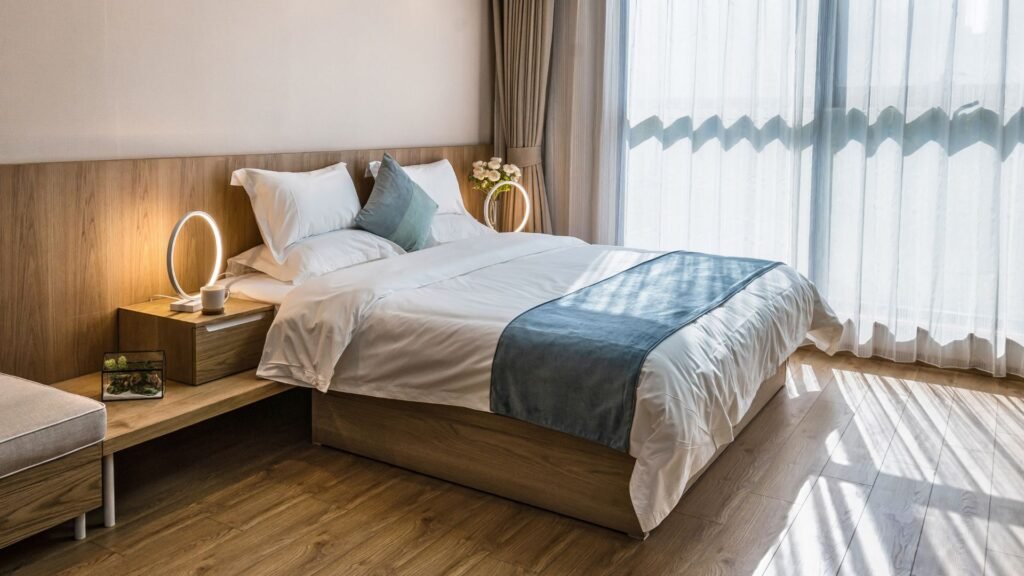
Final Tips For Planning Your Bedroom Renovation
Renovating a bedroom can feel overwhelming if you don’t have a clear plan. Costs can quickly add up, delays can happen, and unexpected issues might come up during the process. Whether you’re going for a small update or a complete makeover, staying organized and prepared will help you avoid stress and stay within budget. Below are key tips to help you plan smarter and make the most out of your renovation.
Set A Realistic Budget And Timeline
Before you pick out paint colors or furniture, get real about your budget. Look at how much you can afford to spend, then break it down into categories like materials, labour, and extras. Always leave room for a 10–15% buffer for unexpected costs. Prices in New Zealand can vary depending on the region, so do your research on local labour rates and supply costs.
Also, consider the time it will take. A basic bedroom refresh might only take a week, but more complex renovations involving multiple trades can stretch to a month or more. Talk with your contractor about realistic timeframes and make sure their schedule works with yours.
Start With A Clear Vision Or Mood Board
Jumping into a renovation without knowing what you want is a quick way to waste money. Start by creating a mood board or folder with designs, colors, and layouts you like. Pinterest and Instagram are great sources of inspiration. This helps you define your style and communicate your ideas to builders, designers, or family members helping with the project.
A clear vision also helps with decision-making when choosing paint, flooring, lighting, or fixtures. It keeps the project focused and avoids backtracking or costly last-minute changes.
Don’t Forget To Factor In Lifestyle Disruptions
Even small renovations can impact your daily life. Dust, noise, and limited bedroom access can disrupt your routine. If it’s your main bedroom, you’ll need to plan where you’ll sleep during the work. If you’re working from home or have kids, plan around those needs too.
Talk with your tradespeople about working hours and how they’ll manage disruptions. Good communication helps avoid surprises and reduces stress during the renovation process.
Plan For Resale, Even If You’re Staying Put
Even if you plan to stay in your home for years, it’s smart to think about how your renovation will impact resale value. Making practical and appealing choices ensures your investment pays off later. Avoid highly personal or trendy choices unless you’re prepared to change them when it’s time to sell.
Planning ahead is the easiest way to reduce stress, stay on budget, and get a finished bedroom you’ll love. Keep these tips in mind before you get started, and you’ll be better prepared for whatever your renovation throws at you.
Thinking about renovating but overwhelmed by the costs? Visit our site and see how we help homeowners like you get more from their budget.
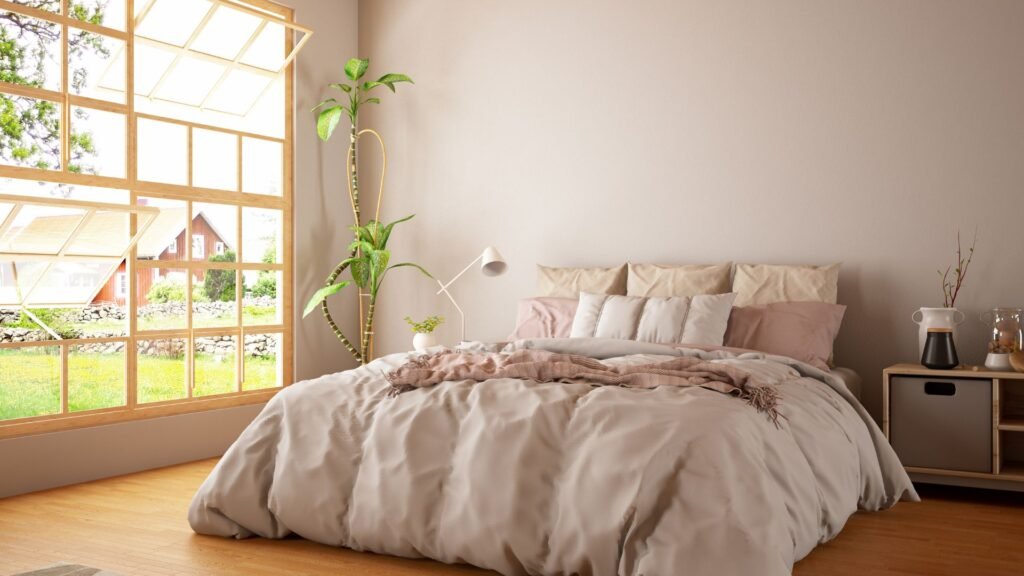
FAQs: About Bedroom Renovation Cost In NZ
What is the average cost of a bedroom renovation in NZ?
The average cost ranges from $3,000 to $20,000. A basic renovation might include painting, flooring, and lighting for under $10,000, while a full remodel with structural changes, insulation, or custom storage can cost closer to $20,000 or more.
What factors affect bedroom renovation costs in New Zealand?
Key factors include the size of the room, quality of materials, scope of work, whether you hire professionals or DIY, regional labour rates, and whether you need council consent for structural changes.
Do I need building consent for a bedroom renovation?
In most cases, cosmetic upgrades like painting, flooring, or lighting don’t require consent. But structural changes, moving walls, or adding windows may need council approval. Always check with your local council.
Can I renovate a bedroom on a budget?
Yes. Focus on high-impact, low-cost upgrades like repainting, new curtains, or replacing light fixtures. Shopping during sales, repurposing furniture, and handling some tasks yourself can reduce costs.
How much do tradespeople charge for bedroom renovations in NZ?
Labour rates vary by region and trade. Expect builders to charge $50–$100 per hour, electricians around $90–$120 per hour, and painters between $40–$80 per hour. Always ask for itemised quotes.
What’s the most expensive part of a bedroom renovation?
Custom-built features like wardrobes or shelving, structural changes, and electrical upgrades tend to cost the most. Premium flooring or insulation can also drive up the total budget.
How long does a bedroom renovation usually take?
Simple updates can be completed in 2–5 days. A full renovation involving multiple trades may take 2–4 weeks, depending on scope and scheduling.
Should I hire a builder or DIY my bedroom renovation?
DIY can save money for small tasks like painting or assembling furniture. But for electrical work, building modifications, or council-related tasks, it’s best to hire licensed professionals to ensure safety and compliance.
Will renovating a bedroom add value to my home?
Yes, especially if the upgrade improves comfort, energy efficiency, or storage. A modern, well-designed bedroom can enhance resale appeal, though the return depends on the local market and quality of work.
How can I make sure I don’t overspend?
Set a realistic budget with a buffer of 10–15% for unexpected costs. Get at least three quotes, plan every detail in advance, avoid mid-project changes, and prioritize needs over nice-to-haves.
Conclusion
Renovating your bedroom doesn’t have to break the bank if you start with a clear plan and budget. By understanding the key costs involved, from design and materials to labour and council fees, you can make smarter decisions that suit your space and lifestyle. Whether you’re going for a simple refresh or a full transformation, every step counts, and even small changes can make a big difference. Take the time to prioritize your needs, compare quotes, and choose where to invest based on what matters most to you.

